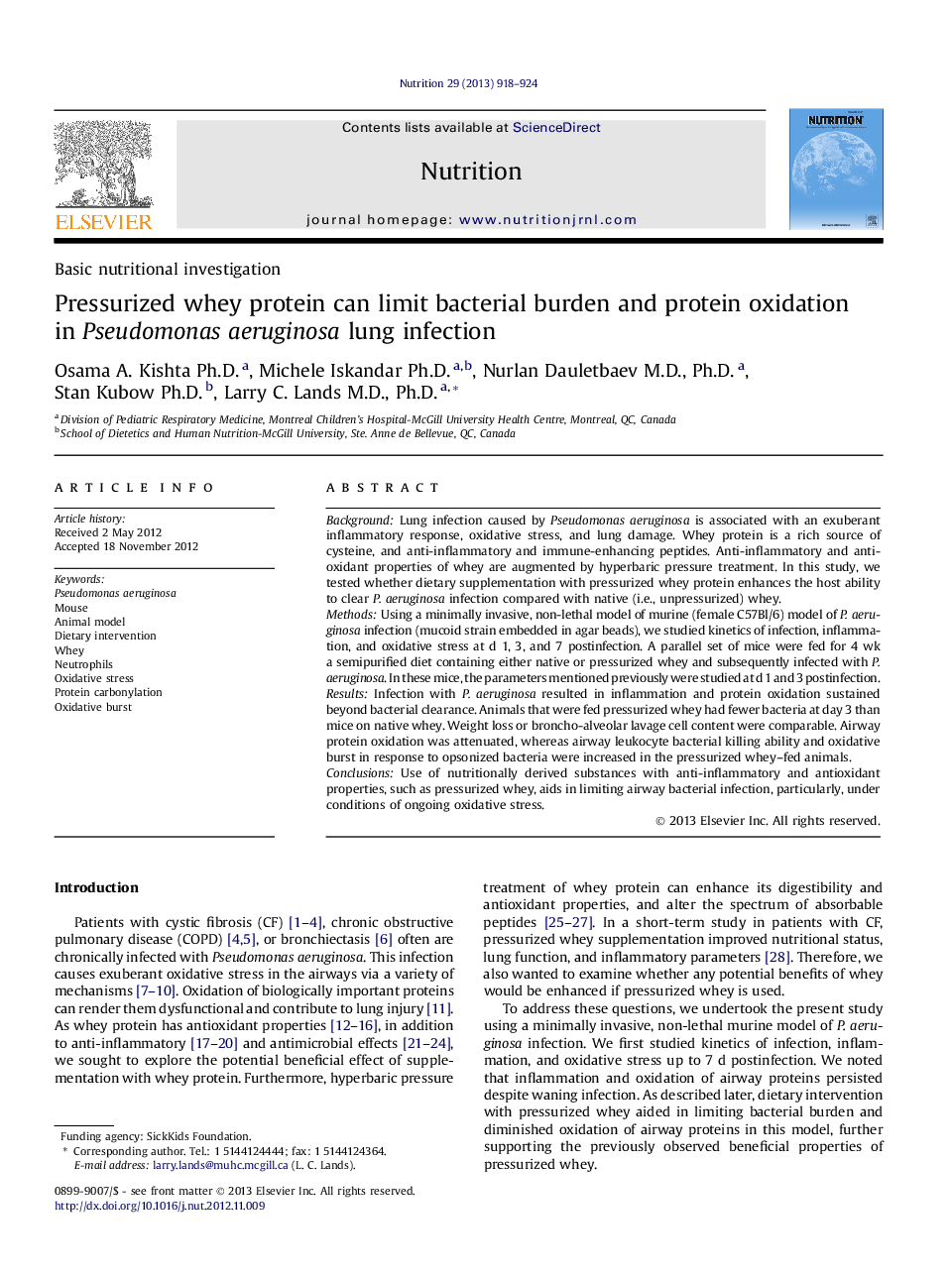| Article ID | Journal | Published Year | Pages | File Type |
|---|---|---|---|---|
| 3276479 | Nutrition | 2013 | 7 Pages |
BackgroundLung infection caused by Pseudomonas aeruginosa is associated with an exuberant inflammatory response, oxidative stress, and lung damage. Whey protein is a rich source of cysteine, and anti-inflammatory and immune-enhancing peptides. Anti-inflammatory and antioxidant properties of whey are augmented by hyperbaric pressure treatment. In this study, we tested whether dietary supplementation with pressurized whey protein enhances the host ability to clear P. aeruginosa infection compared with native (i.e., unpressurized) whey.MethodsUsing a minimally invasive, non-lethal model of murine (female C57Bl/6) model of P. aeruginosa infection (mucoid strain embedded in agar beads), we studied kinetics of infection, inflammation, and oxidative stress at d 1, 3, and 7 postinfection. A parallel set of mice were fed for 4 wk a semipurified diet containing either native or pressurized whey and subsequently infected with P. aeruginosa. In these mice, the parameters mentioned previously were studied at d 1 and 3 postinfection.ResultsInfection with P. aeruginosa resulted in inflammation and protein oxidation sustained beyond bacterial clearance. Animals that were fed pressurized whey had fewer bacteria at day 3 than mice on native whey. Weight loss or broncho-alveolar lavage cell content were comparable. Airway protein oxidation was attenuated, whereas airway leukocyte bacterial killing ability and oxidative burst in response to opsonized bacteria were increased in the pressurized whey–fed animals.ConclusionsUse of nutritionally derived substances with anti-inflammatory and antioxidant properties, such as pressurized whey, aids in limiting airway bacterial infection, particularly, under conditions of ongoing oxidative stress.
